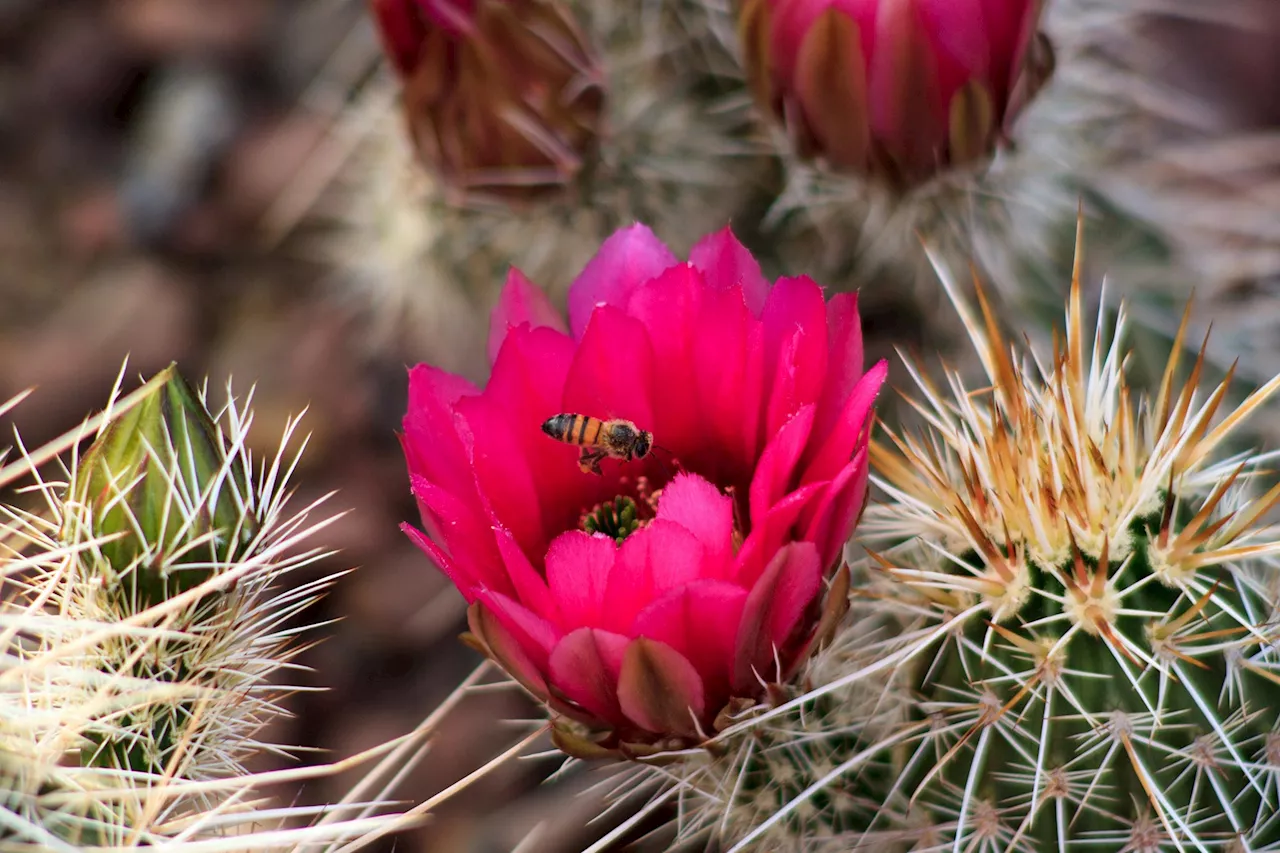Science, Space and Technology News 2024
Bee and butterfly populations are declining in North America due to environmental changes, with significant research gaps hindering conservation efforts.
In this study, Souther and colleagues used data compiled on four major families of bees and butterflies to construct species distribution models, enabling them to assess changes over time and space across North America. Comparisons with climate data indicate that these population changes are at least partly related to the impacts of recent climate change – such as prolonged drought and habitat degradation – and regions experiencing apparent population declines have also been heavily impacted by anthropogenic land use. The authors note too that the apparent increases in the eastern U.S.
United States Latest News, United States Headlines
Similar News:You can also read news stories similar to this one that we have collected from other news sources.
 Diverse native wildflower plantings for pollinators in farmlandsPollinators are declining rapidly, largely due to land conversion and intensification of agriculture.
Diverse native wildflower plantings for pollinators in farmlandsPollinators are declining rapidly, largely due to land conversion and intensification of agriculture.
Read more »
 ‘Bee hotels’ coming to select NYC plazas in effort to protect imperiled pollinators‘Bee hotels’ coming to select NYC plazas in effort to protect imperiled pollinators
‘Bee hotels’ coming to select NYC plazas in effort to protect imperiled pollinators‘Bee hotels’ coming to select NYC plazas in effort to protect imperiled pollinators
Read more »
 Hornets found to be primary pollinators of two Angelica speciesResearcher Ko Mochizuki of the University of Tokyo discovered that two species in the genus Angelica are pollinated primarily by hornets. This overturns the conventional belief that Angelica species are 'generalists,' meaning that there is not one primary pollinator but a variety of species.
Hornets found to be primary pollinators of two Angelica speciesResearcher Ko Mochizuki of the University of Tokyo discovered that two species in the genus Angelica are pollinated primarily by hornets. This overturns the conventional belief that Angelica species are 'generalists,' meaning that there is not one primary pollinator but a variety of species.
Read more »
 Hornets found to be primary pollinators of two Angelica speciesResearcher discovered that two species in the genus Angelica are pollinated primarily by hornets. This overturns the conventional belief that Angelica species are 'generalists,' meaning that there is not one primary pollinator but a variety of species.
Hornets found to be primary pollinators of two Angelica speciesResearcher discovered that two species in the genus Angelica are pollinated primarily by hornets. This overturns the conventional belief that Angelica species are 'generalists,' meaning that there is not one primary pollinator but a variety of species.
Read more »
 Climate change is most prominent threat to pollinators, study findsA paper published in the CABI Reviews journal has found that climate change is the most prominent threat to pollinators—such as bumblebees, wasps, and butterflies—that are essential for biodiversity conservation, crop yields and food security.
Climate change is most prominent threat to pollinators, study findsA paper published in the CABI Reviews journal has found that climate change is the most prominent threat to pollinators—such as bumblebees, wasps, and butterflies—that are essential for biodiversity conservation, crop yields and food security.
Read more »
 Unraveling differences in temperature sensitivity of soil organic matter decomposition under various oxygen conditionsSoil organic matter (SOM) decomposition is a key process that affects soil carbon storage and greenhouse gas emissions. Investigating the temperature sensitivity (Q10) of SOM decomposition and its regulating mechanisms is important for improving predictions of SOM stability and carbon fluxes under future warming.
Unraveling differences in temperature sensitivity of soil organic matter decomposition under various oxygen conditionsSoil organic matter (SOM) decomposition is a key process that affects soil carbon storage and greenhouse gas emissions. Investigating the temperature sensitivity (Q10) of SOM decomposition and its regulating mechanisms is important for improving predictions of SOM stability and carbon fluxes under future warming.
Read more »
